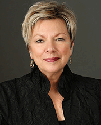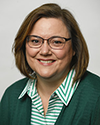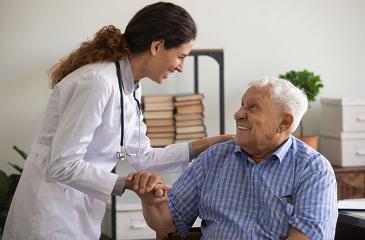Ageism is the stereotyping, prejudice, and discrimination against people on the basis of their age. According to a 2021 World Health Organization report, one in every two people exhibits ageist attitudes or actions toward others, including older adults.

“Ageism affects us as individuals and as healthcare professionals, and has a significant impact on the health care system. We need to keep asking ourselves if we are truly providing the best quality of care to older adults,” Kathleen Krichbaum, PhD, RN, FGSA, ANEF, FAAN, a professor in the School of Nursing. “This will be especially important as the elderly population continues to grow in the U.S. and around the world.”
Working with the Minnesota Northstar Geriatric Workforce Enhancement Program (MN-GWEP), Krichbaum authored MN-GWEP’s recently launched Addressing Ageism in Healthcare toolkit which includes a free online interactive module for health professional students to learn about the definition and description of ageism in today’s world. This toolkit includes perspectives from older adults who have experienced ageism, and from experts who have studied ageism with videos and questions about what people learned from the videos. The toolkit also includes a set of resources for teachers and preceptors to use with students in the health professions, that includes ideas for teaching strategies and use of resources.
According to Krichbaum, it is critical for health professionals to learn about ageism and understand how it can affect the health and care of older adults as the population of people over 65 is expected to increase to 1.6 billion people or 20% of the population by 2050.
“Increasing age, negative self-perceptions of aging, and the experience of ageism itself are all related to an increase in individuals experiencing multiple chronic health problems as well as increased mortality in older adults,” said Krichbaum. “Ageism can also lead older adults to experience decreased memory, cognitive performance, work performance, and the will-to-live.”
To increase awareness of and combat ageism in health care, Krichbaum recommends starting with self-awareness and reflection about ageism.
“Educating yourself about ways to address ageism through resources like the Addressing Ageism in Healthcare toolkit can be a valuable start to learning about your own perspectives on aging,” said Krichbaum.

“This digital learning module only takes about 15 minutes to complete and is so easy for health science educators to assign to students to help make them aware of the impact of ageism in healthcare and to reflect upon how they may change their own attitudes and actions to help end ageism,” said Kristine Talley, PhD, CNP, RN, FGSA, associate professor in the School of Nursing, and co-director of the MN GWEP.



